Black History Month: 9 queer, Black, British heroes from past and present
MNEK, Justin Fashanu and Lady Phyll. (Getty)
This Black History Month, we celebrate nine heroes from past and present who’ve made waves and pushed for change.
Black History Month has been an annual event in the UK ever since 1987. Every year the achievements of Black Britons are highlighted, but often Black LGBTQ+ Brits are overlooked.
Here are nine UK-based LGBTQ+ figures who have made history, from activists to entertainers.
Pearl Alcock
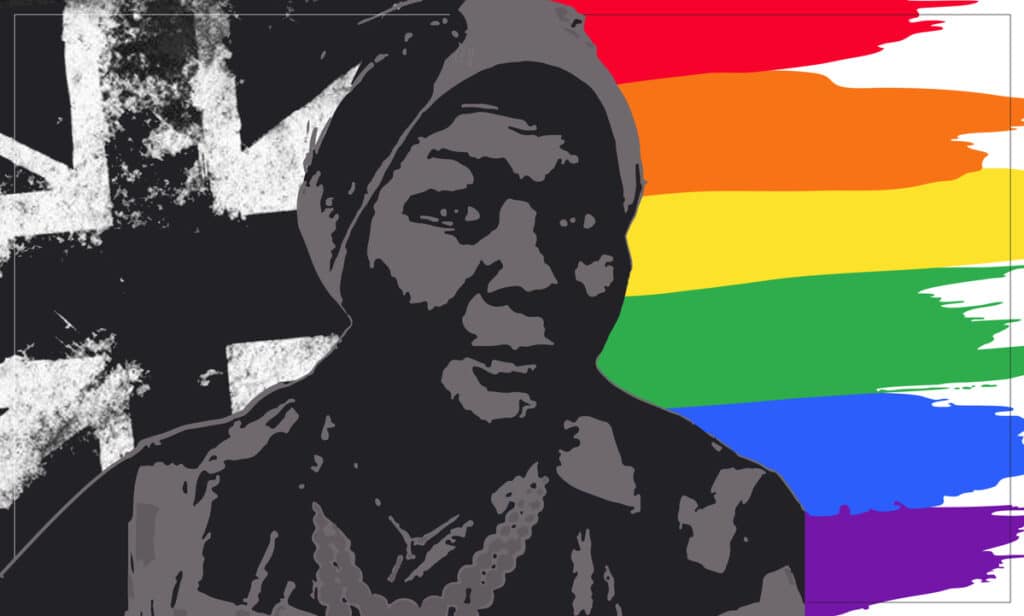
Pearl Alcock is one of Britain’s many Black LGBT+ heroes. (PinkNews)
Alcock arrived in London in 1958 from Jamaica as part of the Windrush generation. She went on to open a dress boutique in Brixton, and later a cafe on the same Railton road. Underneath the boutique, however, was a shebeen (illegal club), that acted as a refuge and place of great significance for the local gay community.
At the time Pearl’s shebeen was the only gay bar in Brixton, meaning it attracted Black men from across London who wanted to feel safe in a space free from racism.
Alcock’s art depicted her visions and moods, expressed in vibrant colour. Her collection Outsider Art continually used familiar and accessible materials – instead of oils or tempera, Pearl used crayons and felt-tips.
In a 1991 interview with Mark Kurlansky she told him that: “Everything I [got], I was scribbling on. The receipts at the cafe. Everything… I couldn’t stop working.”
Lady Phyll
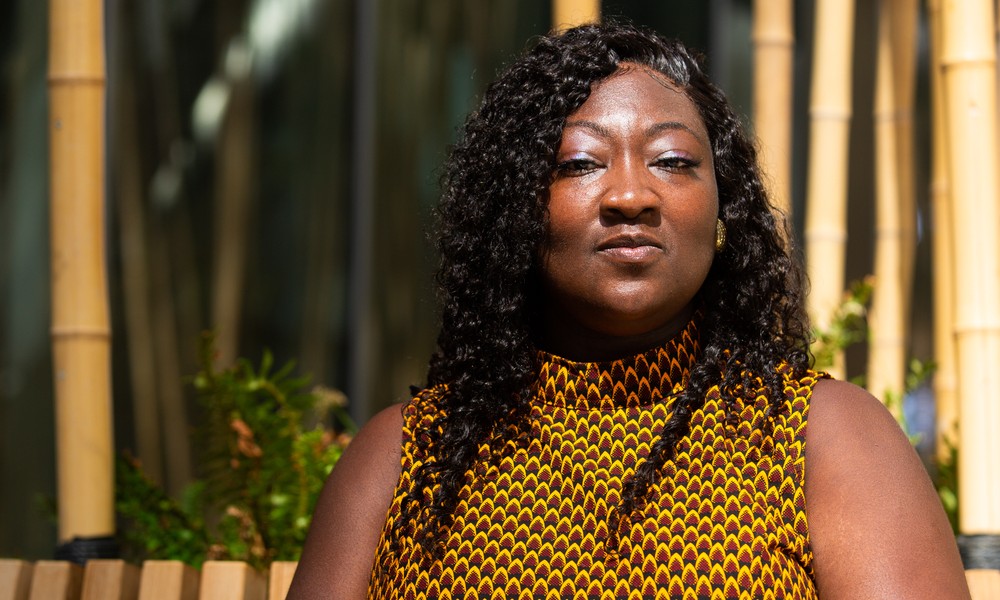
Lady Phyll, co-founder of UK Black Pride and executive director of Kaleidoscope Trust (Corinne Cumming)
Phyll Opoku Gyimah (aka Lady Phyll) is a British activist for LGBTQ+ equality and a co-founder of UK Black Pride. She is also the executive director of Kaleidoscope Trust – a nonprofit organisation that campaigns for the human rights of LGBTQ+ people in countries where they are discriminated.
UK Black Pride produces an annual celebration during pride month, as well as activities year round, in aid of celebrating LGBTQI+ people of African, Asian, Caribbean, Latin American and Middle Eastern-descent.
“Until we all have the same rights, until we do not face any form of injustice, until we all have proper access to housing, to health, to school, to education, then they’ll always be a need for Black Pride,” Lady Phyll said.
Ted Brown
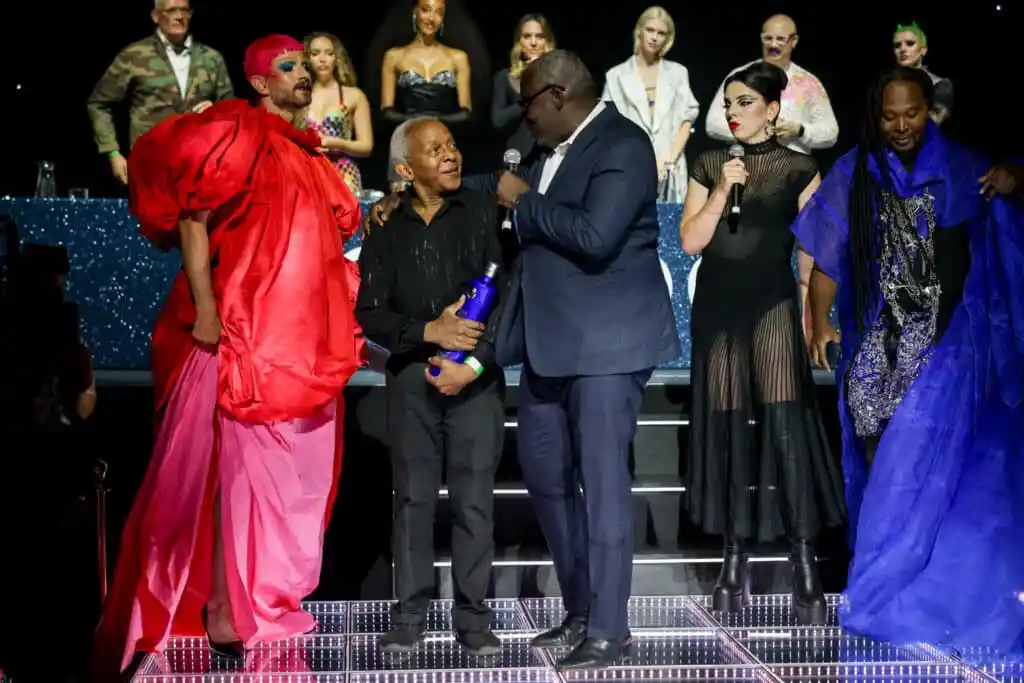
Ted Brown (middle) at the CÎROC Iconic Ball in support of Not A Phase at KOKO. (Photo by David M. Benett/Dave Benett/Getty Images for CÎROC)
Ted Brown is a British activist and member of the Gay Liberation Front (GLF). In July 1972 he made history with a mass kiss-in.
During the UK’s first official gay Pride, which Ted helped to organise, he stopped at Trafalgar Square for the historic mass kiss-in which saw more than 2,000 people participate.
Ted, who was born in New York to Jamaican parents, recalled being one of the few Black faces at the first Pride and in interviews has mentioned often being “confronted with racism”, while living in England.
The LGBTQ+ activist still remembers the first UK Pride clearly, describing the event as “amazing”. In an interview with The Guardian, he said: “I felt that we were continuing the legacy of the civil rights march”.
The London march was organised by the UK branch the GLF and it followed the Stonewall riots and first parade in the US.
“The basic principle of the GLF was that one should come out to show people who we actually are,” Ted said.
Munroe Bergdorf
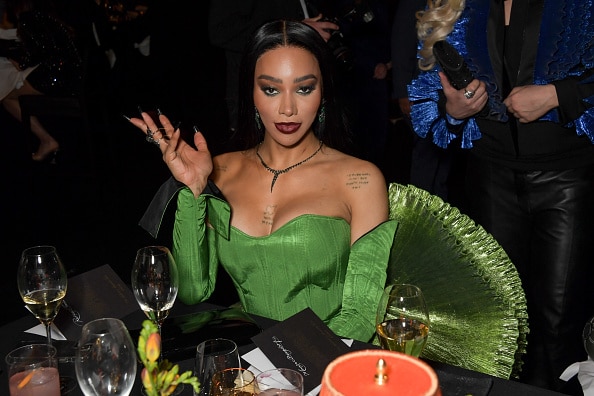
Munroe Bergdorf at a cocktail reception ahead of The Fashion Awards 2021. (Photo by David M. Benett/Dave Benett/Getty Images)
Activist Munroe Bergdorf is a Black trans model and a dedicated advocate on a wide range of issues, including feminism, trans rights, anti-racism and mental health.
In January this year she became the first trans woman to grace the cover of Cosmopolitan UK.
Speaking of the cover she said: “I hope there’s a young trans girl looking at this cover thinking: ‘I can do it too and who I am is not going to hold me back.'”
“I believe the people want trans inclusion, racial equality, to end misogyny so women and girls feel safe walking home at night.”
Justin Fashanu
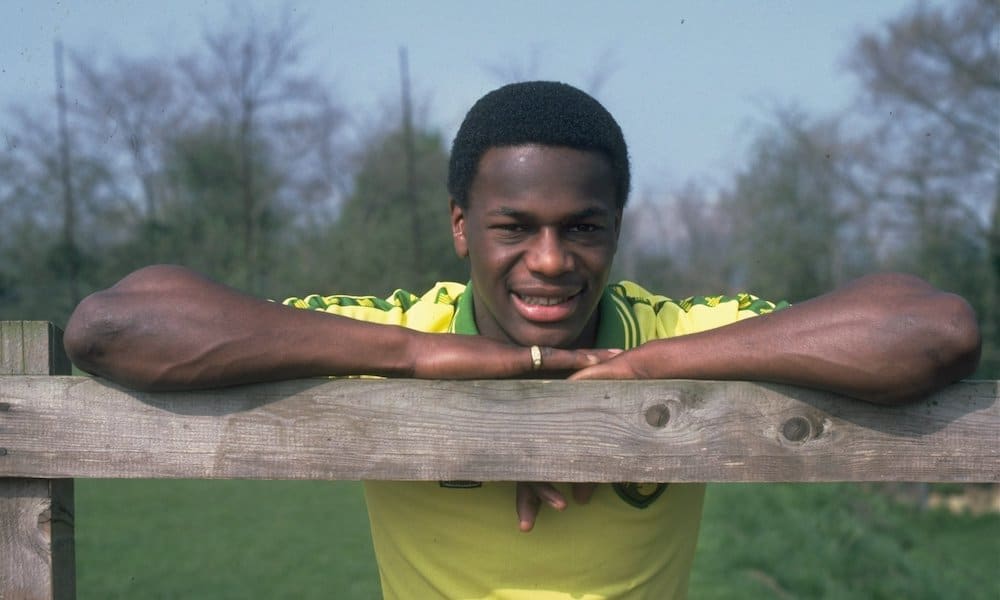
Justin Fashanu of Norwich City, playing for Norwich City in 1981. (Getty/ Allsport UK)
The English footballer made history by becoming the first professional footballer to come out as openly gay. But he died in 1998 by suicide after being hounded by homophobic British tabloid press.
Justin grew up in foster care in Norfolk alongside his footballer brother John. He signed for Norwich City aged 17.
It was in 1990 that he came out publicly as gay and thanks to his honesty his niece, Amal Fashanu, who founded the Justin Fashanu Foundation, believes more top tier players will follow in his lead.
Recently Adelaide United left-back Josh Cavallo, 21, became world’s only out gay active top-flight male football player. Amal Fashanu praised his decision and said he has made football “a safer space” and had shown players around the world that revealing they are LGBTQ+ “might not be the drama they think it will be”.
Skin
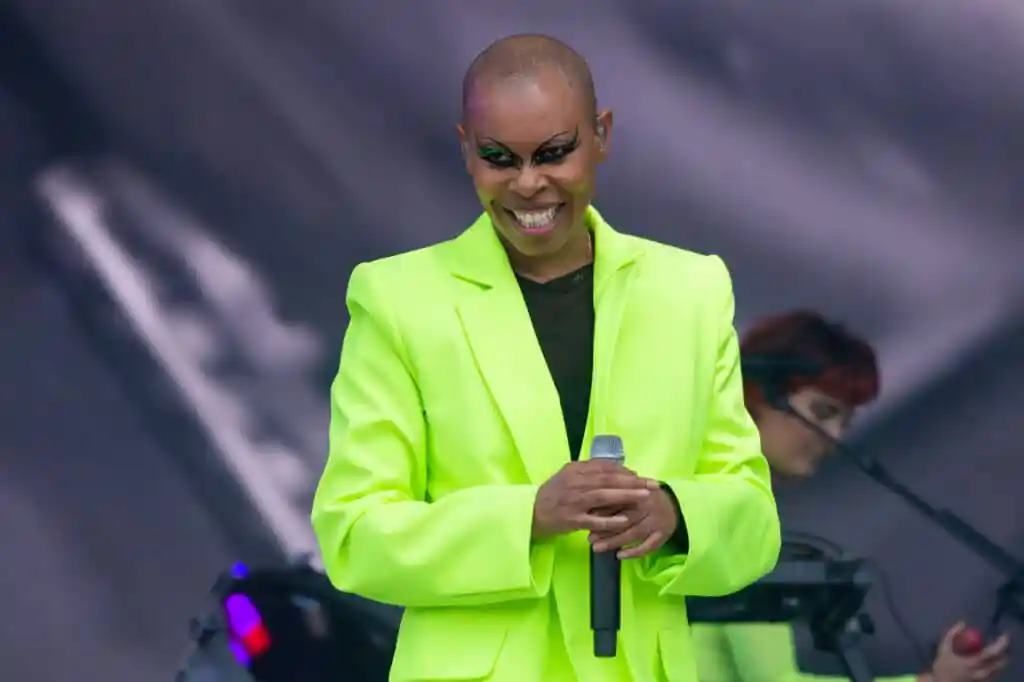
Skin of Skunk Anansie performs on the Other stage during day four of Glastonbury Festival at Worthy Farm. (Photo by Joseph Okpako/WireImage)
Skin was the first Black artist to headline the Pyramid stage at Glastonbury.
The rock icon, who found success in the ’90s as the lead vocalist of British rock band Skunk Anansie, is a passionate LGBTQ+ advocate who has been smashing stereotypes for more than two decades by using her artistic platform to call attention to racism, homophobia and sexism.
In an honest memoir – It Takes Blood And Guts – Skin recalled a journey from fighting poverty to becoming one of the most influential women in British rock.
“It’s been a very difficult thing being a lead singer of a rock band looking like me and it still is,” she wrote.
“I have to say it’s been a fight and it will always be a fight.
“That fight drives you and makes you want to work harder… It’s not supposed to be easy, particularly if you’re a woman, you’re black or you are gay like me. You’ve got to keep moving forward, keep striving for everything you want to be.”
Marc Thompson
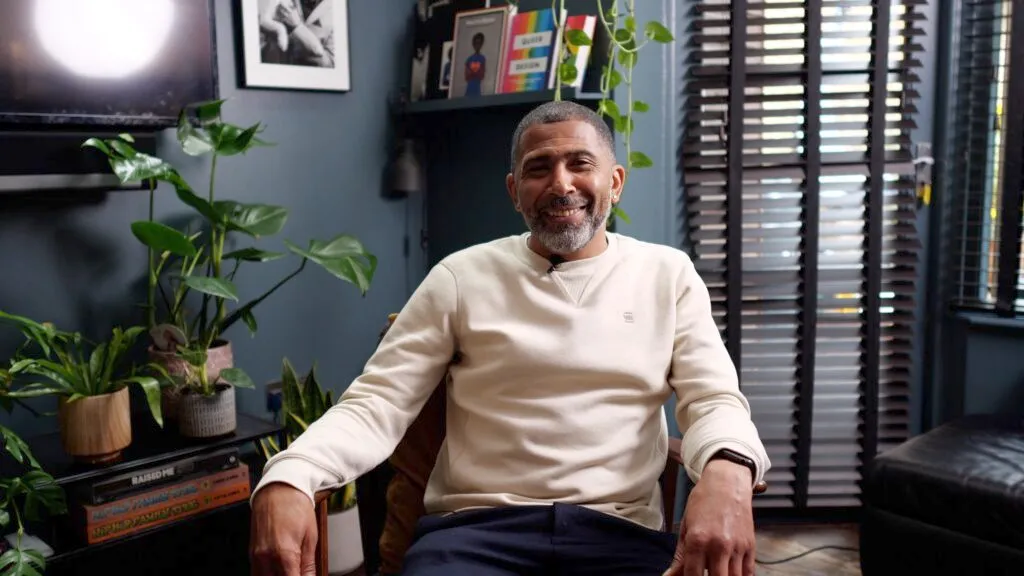
Marc Thompson fights for LGBTQ+ rights. (Supplied)
Marc has dedicated his life to helping Black and queer communities as an activist. Having lived with HIV since 1986, Marc has used his experience to help prevent HIV and stamp out the stigma.
He is the co-founder of Prepster.info, a community-based intervention that aims to educate and agitate for PrEP access globally and was the co-founder of Blackout UK, which is dedicated to building safe spaces for black gay men.
In an interview with London Friend Marc said: “As a young Black gay man, I was motivated by the lack of representation, work and support for Black gay men affected by HIV at the height of the epidemic.
“I felt that we needed a response that was culturally sensitive and appropriate to meet the very specific needs of men in my community.”
MNEK
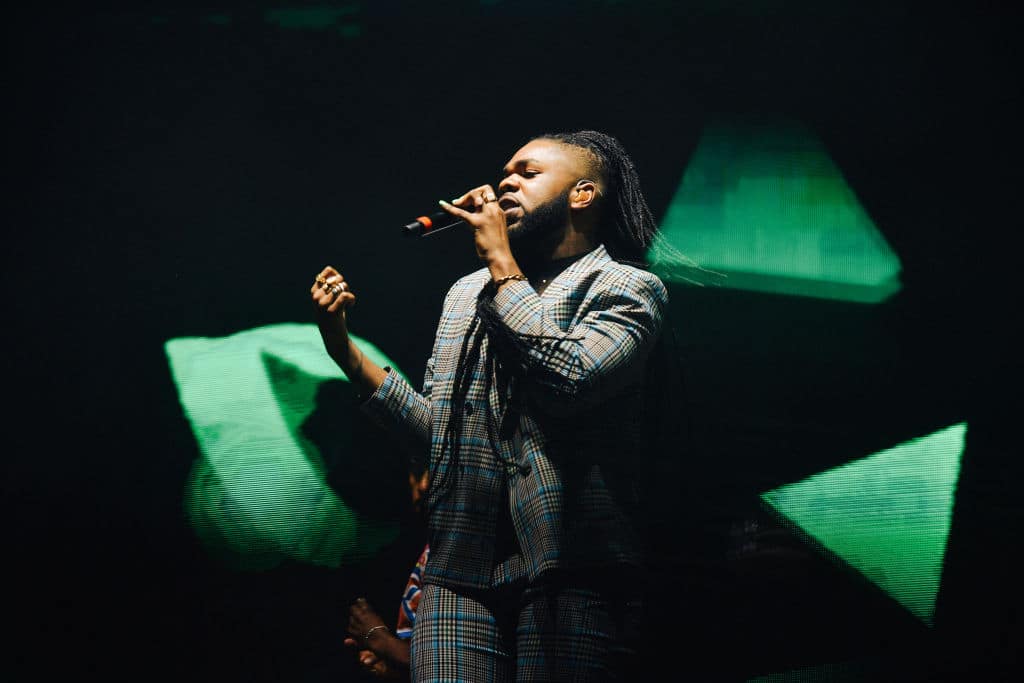
MNEK on stage. (Matt Winkelmeyer/Getty)
British singer-songwriter MNEK, real name is Uzoechi Osisioma “Uzo” Emenikek, rose to fame in 2013 after his collaboration with Duke Dumont and A*M*E on”Need U (100%)”. After receiving a Grammy nomination he went on to feature as a vocalist on Gorgon City’s single Ready for Your Love in January 2014.
MNEK was born in 1994 and came out as gay at the age of 19. Since coming out he has spoken about the difficulty he faces as a gay, Black pop star. In an interview with Time Out in 2018 he said: “I wanna show that a gay Black guy can do this. I don’t want to be limited by what other people think a pop star looks like.”
The singer has also been open about the struggle he faced coming out to his Nigerian dad. “He’s cool, but it’s very different, me being out in the public eye, because it’s everyone’s opinions,” Out reported.
In 2020 the queer popstar, who has also helped to craft hits for Beyoncé, Madonna and Dua Lipa, to name a few, scored a Number 1 hit with “Head & Heart”.
Jide Salami
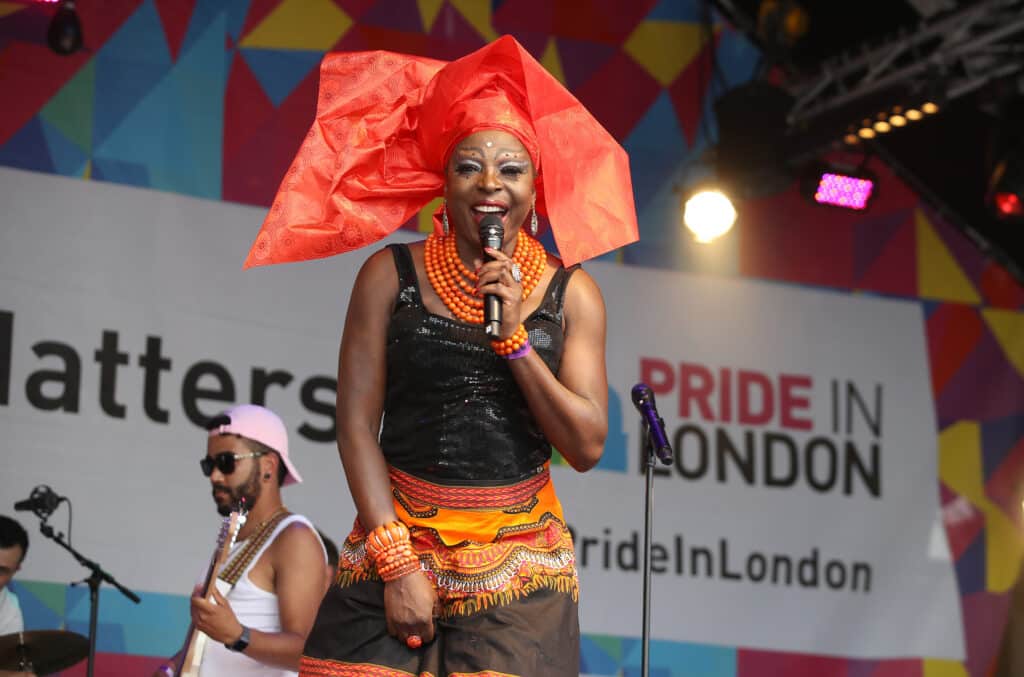
Son of a Tutu performing on the Trafalgar Square Stage during Pride In London in 2018. (Photo by Mike Marsland/WireImage for Pride In London)
Jide Salami, whose drag name is Son of A TuTu, is a veteran drag performer well-known for wearing traditional Nigerian wear. The self-described “African drag queen extraordinaire” uses the drag platform to raise awareness of LGBTQ+ rights in Nigeria, and how in the country it still isn’t accepting of queer lives.
In her September 9, 2018 interview with the BBC, Jide said being a Nigerian drag queen is unique because there aren’t many like her.
“It also can be fraught with danger because some Nigerians still feel that being gay or a drag queen is alien to their culture.
“[They feel] that it’s something some of their ‘children have picked up from their proximity to western culture — it’s a lie! We are as gay as any other country.”

